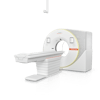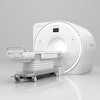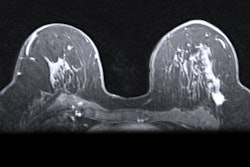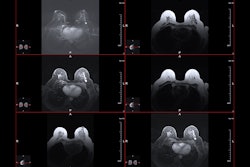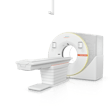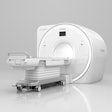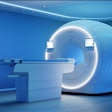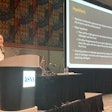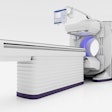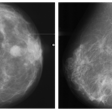CHICAGO -- MRI should be considered for supplemental breast cancer screening in women with dense breasts, according to research presented December 2 at RSNA 2024.
In her talk, Sabrina Walter, MD, from University Medical Centre Mannheim in Germany presented her team’s results showing how breast MRI shows more invasive breast cancers in these women, as well as how it may reduce underdiagnosis of both invasive and noninvasive cancers.
“These results strongly suggest the applicability of supplemental screening using MRI in…women with heterogeneously and extremely dense breasts within a quality assured mammography screening program,” Walter said.
Mammography’s performance suffers when imaging dense breasts, with its sensitivity decreased by around 40% when scanning extremely dense breasts. This means that many cancers may be underdiagnosed in these women, with lower prognosis in women with distant or unstaged cancers.
In the U.S., the U.S. Food and Drug Administration (FDA) enacted a federal mandate requiring imaging facilities to disclose breast density information to women. The American College of Radiology (ACR) categorizes breast density from A through D, with A indicating nearly all fatty tissue and D meaning extreme density. The ACR also recommends MRI for women with dense breasts.
Walter highlighted MRI’s high sensitivity, specificity, negative predictive value, and cost-effectiveness in screening high-risk patients. She and colleagues studied how supplemental MRI adds to total breast cancers found in women with dense breasts after the women received a negative screening mammogram.
The researchers set the time between initial screening mammogram and MRI exams at two months to reduce interval cancers. The women underwent a sub-10-minute MRI protocol, with readers having more than 15 years of experience.
The study included data collected from 200 women with breast densities categorized as ACR C or D, indicating heterogeneously and extremely dense breasts, respectively.
Eight women were recalled due to positive breast MRI findings. This translates to a recall rate of 40 per 1,000 women.
Image-guided biopsy revealed four cancers, three of which were deemed invasive in women presenting with category C breast density. The other one cancer case was a non-calcifying ductal carcinoma in situ (DCIS) in a woman with category D breast density. This resulted in a cancer detection rate of 20 per 1,000, a positive predictive value (PPV) of recall of 50%, and a PPV of biopsy of 62.5%.
Walter said that with these results in mind, using MRI as a supplemental screening tool in these women can add additional benefit to finding more cancers.
“These findings are highly important as the population investigated constitutes a much higher proportion of women and yielded cancers particularly in women with heterogeneously dense breasts,” she said.
For full coverage of RSNA 2024, visit our RADCast.
